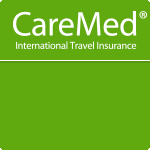Project Details
The 375 km large Kakum National Park lies 33 km north of Cape Coast. It has had the status of national park since 1992. The park is home to endangered Mona monkeys, Diana monkeys, African Forest Elephants, a smaller subspecies of the African elephant, bongo antelope, forest buffalo, civet cats and 56 species of birds. 105 species of plants have been recorded.
The 330-meter-long tour of suspension bridges (Canopy Walkway) between the 45 meter high canopy of the forest, is unique in Africa. It provides a view of the rainforest from a perspective that is otherwise impossible for humans.
The park is managed by a partnership between the private Ghana Health Trust and the State Forestry Department of Ghana.
The Ghana Health Trust takes care of the resources in the Visitors Centre and the main attraction of the park, the Canopy Walkway; it is responsible for the safety of these facilities. The Visitor Centre and Canopy Walkway are available daily from 8:00 a.m. to 3.30 p.m. (longer if there are a large number of visitors). All other staff are provided by the Forestry Department.
The Forestry Department is divided into the Tourism Department, Law Enforcement and Collaborative Resource Management . Internships and volunteering assignments are possible, guided and supervised by qualified personnel.
The Tourism Department has ten employees who are the guides for tourists (early morning tours between 6.00 a.m. and 8.00 a.m. need to be booked in advance by visitors) and are responsible for the eight campgrounds in the park. You can also work on developing the offerings to tourists and provide ideas to improving the experience for them. Walking routes are planned and designed for multiple day treks through the forest; visitors can camp there. Ideas to best recycle and regulate waste while people visit are constantly thought of.
An internship is possible in guiding tourists through the park. Interns and volunteers who wish to work on the development of walking routes should be familiar with the use of GPS systems.
The region of Kakum is economically weak and tourism was introduced to improve conditions.
The Law Enforcement Department has 55 employees whose job mainly consists of daily inspection tours. They sift through the National Park for poachers and traps, and inspect the population of animals and plants. Since there are heavily armed poachers in the park, volunteers and interns are advised not to participate in these activities.
The Law Enforcement Department is also responsible for statistics and data collection of any kind, including visitor data and animal and plant resources. Visitors are classified as 7 Categories (indigenous adults, local students, local school children, children, foreign adults, foreign students, foreign children) and are interviewed regularly to understand and meet their needs better. Interns and volunteers can help by creating questionnaires, surveys, and implement and evaluate these with STATA. The park receives about 180,000 visitors per year, of which 70% come from Ghana and 30% from other countries. In biological/botanical/zoological field, data is collected on microorganisms, insects, butterflies, vines and creepers.
The department of Collaborative Resource Management has four employees and tries to merge the interests of all affected by the National Park. The main issue is human-wildlife conflict . Unfortunately, there is no buffer zone between the National Park and the adjacent population, so the resident wildlife, particularly the forest elephants, enter the farms and plantations, and eat crops such as cocoa, palm trees, rubber trees, citrus trees and corn and destroy them. Farmers are hence, trained in how to protect their crop. Environmental education activities are carried out in schools.
In addition, the Collaborative Resource Management develops income generating activities such as beekeeping for honey extraction and promote them in the surrounding areas of Kakum.
You can do your thesis here at an additional cost.
Volunteers and interns can also carry out practical work in the National Park. This includes the creation of hedges of peppers plants that will help keep elephants away from the bordering farms, renovation and maintenance of buildings and maintenance of visitor facilities such as roads, fences, bridges and water supply and improving accessibility for wheelchair users. There is also regular work in the areas of reforestation and pest control. No previous experience is necessary for these activities.
Info Box
|
Location: Kakum, Ghana
Availability: All year, Start date flexible
Minimum Duration: 1 Month
Maximum Duration: 12 Months
Language Requirements: English
Accommodation:
House, Host Family
|
Supervision Possible: Yes
Qualification Of Supervisor: Biologist, Ranger, National Park Managers
Minimum Qualification Of Intern: None
Further Contribution To Project: Yes, 250 USD for each commenced month to the National Park
|
Volunteering Possible: Yes Required Qualification For Volunteer: None Further Contribution To Project: Yes, 250 USD for each commenced month to the National Park Expectations: Professional Conduct, Do you have the "right" attitude?
|























































































































































































































































































































































